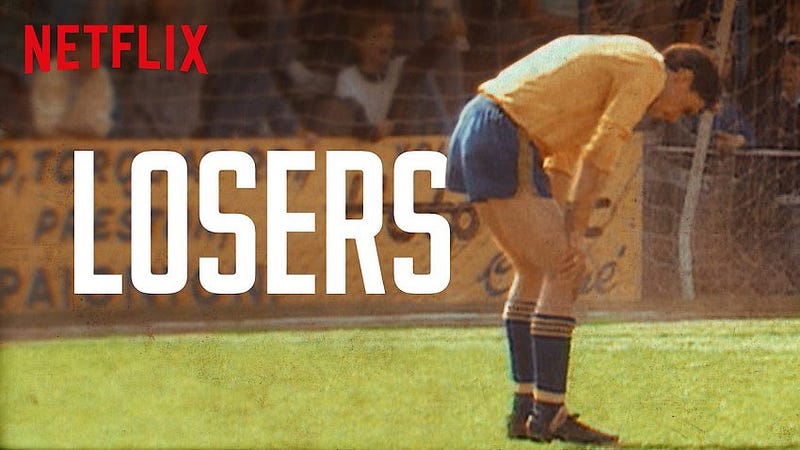Losers is a new-ish docu-series on Netflix.
If we’re to believe everything we see and hear these days, life can be broken down to two things: winners and losers. When I pulled up this series on Netflix, I expected to find a show about, well, people who didn’t win. While fundamentally correct, Losers is about much more than simply sports players who didn’t win in their selected sport.
Like the ESPN series 30 for 30, Netflix’s Losers tells the stories behind the sports. For me, these are always more interesting than the sports themselves. But then I am, admittedly, not a sports fan.
When the first episode cracked open and revealed the story of the reluctant former heavyweight champion Michael Bentt, I was quickly hooked. Sure, his story has all the usual tropes, poor upbringing, abusive father and overcoming the odds to become the heavyweight champ, then losing it and ultimately his journey to Hollywood.
Bentt’s story even includes an interview with actor Mickey Rourke (reminding us of the horrors of plastic surgery). But Bentt is engaging and tells his tale bluntly.
Episode two reveals the story of perennial struggling British footballers the Torquay United Gulls. The club that is housed on the British version of the French Riviera (their words, not mine). They also say that the Gulls only exist today because of a dog bite (seriously).
Episode three is about French figure skater Surya Bonaly. Her story unveils the ugly truth that racism is very much alive and kicking in competitive figure skating. But it also shows us that sometimes it takes a rebel to shake things up and that change, even if it does move at a glacial pace, is inevitable.
And then as I continued watching the stories unfold about a curler, a marathon runner, a musher, a playground basketball legend and a French golfer it began to hit me. None of these people were losers.
No. They aren’t “winners” in the traditional way we’ve come to define what a “winner” is, but they sure as hell aren’t losers.
The title of the show is misleading and I think deliberately so. However, if the show had been called something more specific like Second Placers or Never Winners it’s unlikely anyone would watch it.
Each one of these stories is fascinating but where Losers particularly excels, and brings some levity, is using animation to supplant actual footage and to explain certain elements, like points in curling or the path of the Iditarod. Also, each episode of the series smartly clocks in under 40 minutes.
If you’re intellectually stunted enough to believe the world is only full of “winners” or “losers” or naive enough to see the world through that lens, this may not be the show for you. Losers reminds us, in the best possible way, that we’re all human and that not everyone can be Messi, LeBron James or Tara Lipinski.
The last episode of this eight episode season is the story of French golfer Jean van de Velde. Arguably his story remains one of the more confounding bungles in golf, if not sports. In any event, he sums up his experience by shrugging and saying “Winning is the goal” (I suspect there may be years of therapy behind that statement, but it’s true).
But Jean van de Velde is right, winning is the goal, be it in sports, politics or in life . . . . BUT winning should never be the sole purpose you do something.
Sure, in sports there are winners and losers, but in every other aspect of life nothing can be divided into anything as simple as “winning” and “losing”.
Life is not that black and white.
Life is grey.
Losers reminds us of that.





